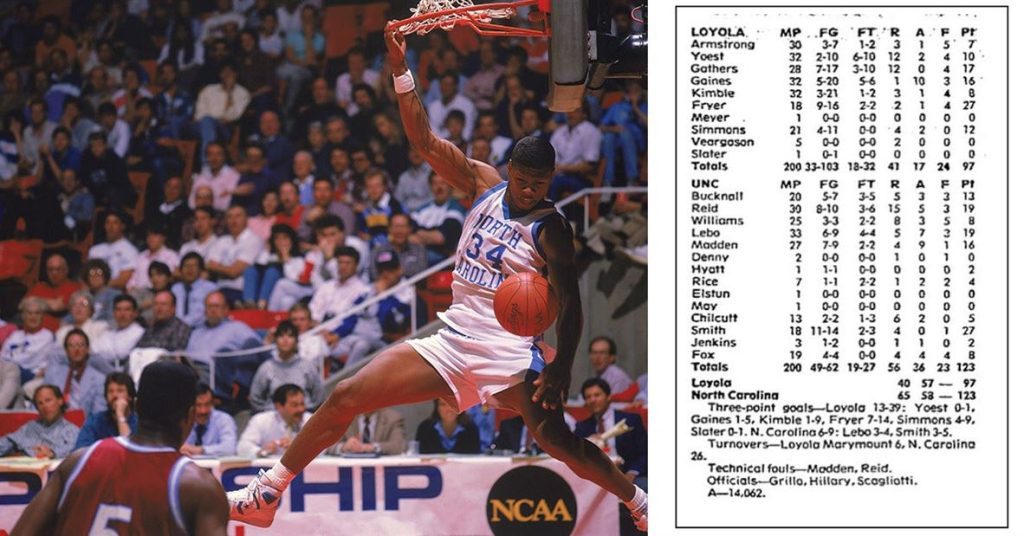Scott Whisnant will be signing copies of his memoir,
Tar Heel Bred, on Saturday, June 14, from 5-8 p.m. at Four Corners restaurant in Wrightsville Beach.
***
The 1988 Basketball Season
The North Carolina Tar Heels’ 1988 basketball season was somewhat underwhelming. They secured the ACC regular season title and experienced only seven losses, three of which were to rival Duke. Although they had a successful run in the NCAA Tournament, they were ultimately defeated by Arizona in the regional final.
Challenge from Loyola Marymount
Within this season, a pivotal moment arose during the NCAA tournament’s second round against Loyola Marymount, a team that was rapidly becoming a powerhouse in college basketball. After Loyola scored an astounding 51 points within just 12 minutes in their first game, many feared UNC would be overwhelmed. Coach Dean Smith had only one day to prepare after a lackluster victory, where he described his team as “terrible” for the last ten minutes.
Record-Breaking Performance
The result was a new NCAA Tournament scoring record and a shooting percentage that hasn’t been replicated since—UNC achieved an astonishing 79%. The Heels won the game 123-97, yet this historic victory often slips through the cracks of Carolina’s storied past, overshadowed by the clash of styles between Smith’s traditional approach and Loyola’s innovative tactics.
Paul Westhead’s Revolution
Paul Westhead, who previously led the Los Angeles Lakers to an NBA championship, took up coaching at Loyola in 1985 and introduced a revolutionary playing style emphasizing rapid scoring and full-court pressure. By the 1988 season, Loyola was leading in both points scored and allowed and had won 25 straight games, becoming a buzzworthy topic in basketball.
The Game Itself
Smith respected Loyola’s abilities and prepped his team thoroughly. However, the game showcased Smith’s strategic mastery. North Carolina surged ahead with an initial 7-point lead, and by the half, they maintained a significant advantage. Ultimately, the Tar Heels dominated, highlighting that they could execute their game plan with precision, contrasting Loyola’s chaotic pace.
Conclusion
The box score of the game tells a compelling story. Despite committing 26 turnovers and conceding 28 offensive rebounds, UNC’s overall rebounding outnumbered Loyola’s. Westhead’s era at Loyola concluded with a tragic event and attempts to implement his system in the NBA. Ultimately, Dean Smith’s ability to simplify strategy proved crucial, aptly emphasizing the significance of sticking to fundamentals in high-pressure situations.



